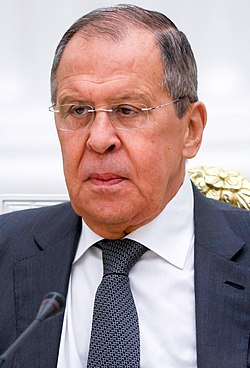
Introduction
The role of Sergey Lavrov, Russia’s Foreign Affairs Minister, has become increasingly significant in international diplomacy, especially amidst ongoing global conflicts. His tenure has seen pivotal changes in Russia’s foreign relations and a transformation in the geopolitical landscape.
Background of Sergey Lavrov
Sergey Lavrov has served as the Minister of Foreign Affairs of Russia since 2004, making him one of the longest-serving foreign ministers in the country’s history. A career diplomat, Lavrov initially joined the Soviet Foreign Ministry in 1970, where he held various positions before becoming Russia’s Permanent Representative to the United Nations from 1994 to 2004. His extensive experience has made him a key figure in shaping Russian foreign policy and an influential player on the global stage.
Recent Developments
In recent months, Lavrov has been vocal about Russia’s position on various international issues, including the Ukraine conflict, NATO expansion, and relations with China and the United States. His comments come amid rising tensions with the West, particularly following increased military support for Ukraine from NATO allies. Lavrov has consistently defended Russia’s actions, asserting the country’s right to secure its borders and interests.
In a press conference held last month, Lavrov stated, “The West continues to ignore the legitimate security concerns of Russia, and we must adapt our policies accordingly.” His remarks reflect a resolute stance that has characterised his tenure, often focusing on national sovereignty and regional stability.
Impact on Global Diplomacy
Lavrov’s diplomacy style is known for its assertiveness and directness. Analysts note that he has been successful in maintaining Russia’s influence in crucial regions, particularly in the Middle East and Eastern Europe. Recently, he has engaged in discussions with nations such as Turkey, Iran, and India, highlighting Russia’s efforts to strengthen economic and strategic partnerships amidst growing isolation from the West.
Conclusion
Sergey Lavrov remains a pivotal figure in Russian foreign policy, with his actions and statements carrying considerable weight in international relations. As geopolitical tensions continue to escalate, his ability to navigate complex diplomatic waters will be closely watched. The future of Russian foreign policy and its relationships on the global stage may very well hinge on Lavrov’s strategic decisions in the months to come.
You may also like

Understanding the Current Political Landscape in the UK

The UKIP Party: Recent Developments and Future Outlook

Boris Johnson: A Look at His Current Political Landscape
SEARCH
LAST NEWS
- Remembering Wendy Richard: The Promise to Co-Star Natalie Cassidy
- How Did Anglian Water Achieve an ‘Essentials’ Rating for Mental Health Accessibility?
- Shai Hope Leads West Indies in T20 World Cup Clash Against South Africa
- What We Know About Weston McKennie: Future at Juventus and Past at Leeds
- What We Know About the Upcoming Live Nation Antitrust Trial